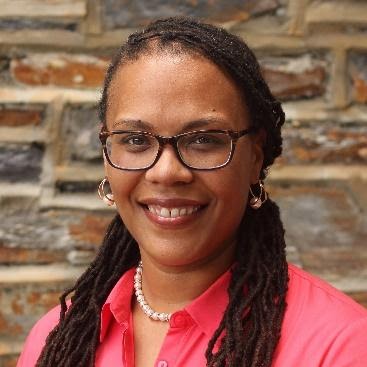Distinguished Lecture | Alumni | ECE Willie Hobbs Moore Distinguished Alumni Lecture
Resonant Infrared, Matrix-Assisted Pulsed Laser Evaporation: Enabling Hybrid Thin Films for Optoelectronics
This event is free and open to the publicAdd to Google Calendar

This lecture is being conducted remotely. To join, ECE suggests logging into Google hangouts via your computer so you can see the slides as they are shared. Information is included below.
https://bluejeans.com/519566531/webrtc (no app required)
Just want to dial in?
1.) Dial:
+1 734 763 1841 (Last 5 digits from campus)
(US or Canada only)
+1.888.240.2560
International Callers (http://bluejeans.com/numbers)
2.) Enter the Meeting ID: 519566531
Abstract
Future applications, such as wearable electronics, flexible and transparent displays, or devices for solar energy conversion and storage require materials with more versatility, more integrated functions, and more environmentally responsible processing compared to traditional options (i.e., inorganic semiconductors, like silicon). Organic semiconductors, such as small molecules and polymers, are well-suited to these future requirements; however, their electrical properties and environmental stability are inherently worse. Hybrid materials, such as inorganic nanoparticles embedded within a polymer film, can mitigate the trade-offs that exist for any single material type by combining organic and inorganic semiconductors. For example, hybrid materials can impart multi-functionality, flexibility, transparency, and sustainability to devices based on the interaction of light and matter (i.e., optoelectronic devices) or energy-related devices (e.g., solar cells, supercapacitors, or photo-electrochemical cells). A critically important requirement to realize the promise of hybrid materials for devices is to understand and control thin film deposition. Because hybrid materials are heterogeneous systems containing more than one component, thin-film deposition can be complicated compared to single component films. As a result, the co-deposition of two or more materials with different properties to synthesize a hybrid film with pre-determined functionality is a technological challenge within thin-film engineering. I will describe my research program that investigates hybrid thin film deposition using resonant infrared, matrix-assisted pulsed laser evaporation (RIR-MAPLE) to control structure and properties and to improve the performance of optoelectronic and energy-related devices. I will also reflect on my path to a career in academia and the lessons I have learned along the way.
Bio
Adrienne D. Stiff-Roberts is Jeffrey N. Vinik Professor in the Department of Electrical and Computer Engineering at Duke University, where she is also the Director of Graduate Studies for the University Program in Materials Science and Engineering. Her current research interests include organic and hybrid thin-film deposition by resonant-infrared matrix-assisted pulsed laser evaporation (RIR-MAPLE); materials characterization of organic and hybrid thin films; and the design, fabrication, and characterization of organic and hybrid optoelectronic devices, especially infrared photodetectors, photovoltaic solar cells, and multi-functional sensors. Dr. Stiff-Roberts received both the B.S. degree in physics from Spelman College and the B.E.E. degree in electrical engineering from the Georgia Institute of Technology in 1999. She received an M.S.E. in electrical engineering and a Ph.D. in applied physics in 2001 and 2004, respectively, from the University of Michigan, Ann Arbor. Dr. Stiff-Roberts is a recipient of the National Science Foundation CAREER Award (2006), the Office of Naval Research Young Investigator Award (2007), the IEEE Early Career Award in Nanotechnology of the Nanotechnology Council (2009), and the Presidential Early Career Award for Scientists and Engineers (2009).
 MENU
MENU 
